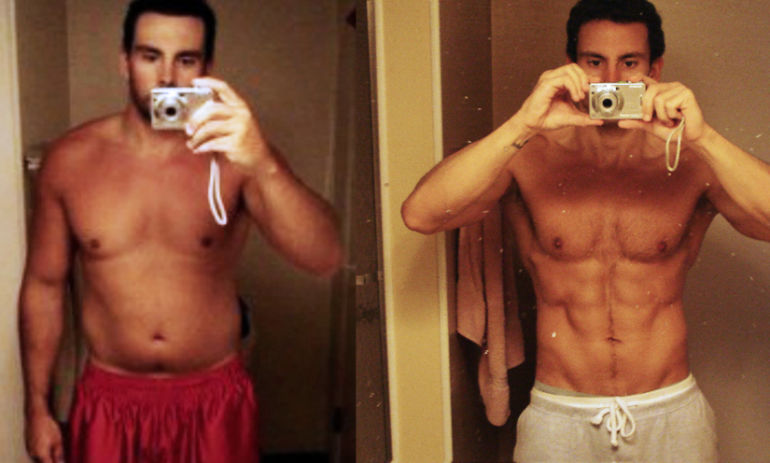Burning Calories - How Accurate Do You Need To Be?
You are trying to lose weight so you get out and walk, jog, or run every day. But for some reason when you step on the scale each morning, you don't seem to be getting anywhere. You can feel yourself becoming more fit with each step that you take, but the pounds aren't coming off. You ask yourself, "Maybe, I'm going too slow - I should go faster then I will burn more calories."
The question is: does a person who runs 10 mph (6 minute mile) burn more calories than a person who runs 5 mph (12 minute mile)? First of all, to answer that question one needs to understand that calorie expenditure is dependent on many factors including exertion level, body weight, type of activity, and duration of exercise. Also, people who perform aerobic exercises, like running or brisk walking, tend to burn more calories than other types of exercises especially if they keep their heart rate in the 70%-80% area. But what does all this mean to the average person trying to shed a few pounds.
The simple answer; it doesn't - so don't worry about it. You could scientifically and mathematically calculate your calories burned each and every time you exercise with complicated and exacting formulas. But the goal here is not to waste valuable time doing mundane paperwork - instead use the time to exercise and loose more calories. So here's my take on this subject. Be generic. That's right, be a generalist and use a number that's been used for many many years. One mile is equal to 100 calories - that is all you need to use. Yes, it's a rough estimate, but it works - and it is close enough to suit the average person's needs for weight loss. Let me explain how this "one size" fits all by using our original example. A 130 pound person who runs a 6 minute mile (very fast) will burn approximately 944 calories in one hour - pretty impressive. If that same person ran a 12 minute mile pace for one hour, he would expend enough energy to rid himself of 472 calories. Now, at this point you're saying to yourself, "Wow, that's quite a difference; I really need to run faster." Here's the secret. You do not need to run faster - you need to train yourself to run or walk longer. Why? Here's the math: if you divide the 944 calories of the faster runner by the 6 miles ran in one hour, and the 472 calories of the slower runner by the 5 miles ran in one hour each runner would have an average of 94 calories per mile. So now it's easy to see that the faster runner burns more calories in one hour only because he covered more miles not because he was faster. This 100 calorie per mile estimate is all you need to keep track of your goals in losing weight. Even people who walk a slow pace of 2 or 3 miles per hour on a flat surface usually burn 75 to 80 calories per mile. So it is indeed a "one size" fits all when it comes to counting running or walking exercise calories.
To have an effective exercise program you must not get hung up on whether you lost 465 calories today, or 512 calories - it really doesn't matter. What is important is to go out there and do your thing at your own comfortable pace. Go out and walk or run 5 miles - when you get home feel good about burning 500 calories - incidentally that's roughly 15% of a pound (3500 calories to a pound). If you do this every day you will lose a pound of weight each week. It's very simple -burn more calories than you take in and you will drop the pounds. Just go easy on the Hersey kisses after you get home- they're 25 calories each.
-
How to use almonds for weight lose
Almonds have a high nutritional value and are low in saturated fats. I
-
A New Diet Bowel Cleansing For Weight Loss
An ancient practice from Eastern Medicine, bowel cleansing is fast bec
-
Lupus (SLE) raises osteoporosis bone fracture risk
Lupus – systemic lupus erythematosus – increases the risk of o
-
A Slimmer, Sexier You in 2011
Dont let another year of weight-loss resolutions pass you by. Here
-
Change Your Life To Get Healthy And Feel Great
Is it your goal to be healthy and feel great? It is for most peo
-
What抯 a Good Raw Diet for Your Health?
There seems to be a rise in the cases of
- DON'T MISS
- Natural Weight Loss Pills Are Much Better Than Artificial Ones
- Finding Helpful Weight Loss Programs
- Is it OK to put my Kid on a Diet?
- Download MP3 Hypnosis and Lose Weight Immediately
- Shhhh..... I'm Working Out
- Weight Loss Diet Plan - What Really Works
- A 1-Day Plant Based Meal Plan That Helped Me Reach My Goal Weight
- Healthy Weight Loss Tips For Women 5 Ways To Staying Slim
- Listen Up! How To Understand What Your Body Is Trying To Tell You
- Youve lost the Weight, but how clean are you on the inside where it Counts?




